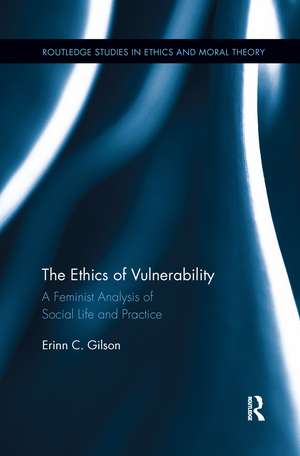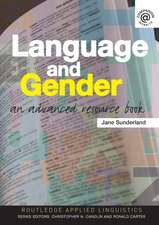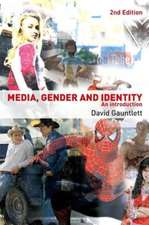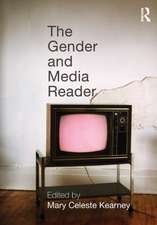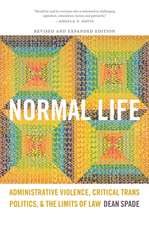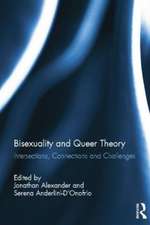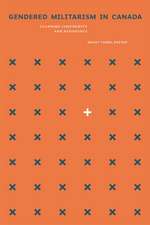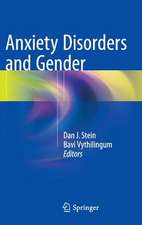The Ethics of Vulnerability: A Feminist Analysis of Social Life and Practice: Routledge Studies in Ethics and Moral Theory
Autor Erinn Gilsonen Limba Engleză Paperback – 27 iul 2016
| Toate formatele și edițiile | Preț | Express |
|---|---|---|
| Paperback (1) | 382.47 lei 6-8 săpt. | |
| Taylor & Francis – 27 iul 2016 | 382.47 lei 6-8 săpt. | |
| Hardback (1) | 1053.16 lei 6-8 săpt. | |
| Taylor & Francis – 30 ian 2014 | 1053.16 lei 6-8 săpt. |
Din seria Routledge Studies in Ethics and Moral Theory
-
 Preț: 295.34 lei
Preț: 295.34 lei -
 Preț: 450.61 lei
Preț: 450.61 lei -
 Preț: 311.48 lei
Preț: 311.48 lei - 9%
 Preț: 1004.86 lei
Preț: 1004.86 lei -
 Preț: 311.51 lei
Preț: 311.51 lei -
 Preț: 309.50 lei
Preț: 309.50 lei -
 Preț: 311.41 lei
Preț: 311.41 lei -
 Preț: 325.74 lei
Preț: 325.74 lei -
 Preț: 311.06 lei
Preț: 311.06 lei -
 Preț: 313.72 lei
Preț: 313.72 lei -
 Preț: 716.43 lei
Preț: 716.43 lei - 18%
 Preț: 1112.55 lei
Preț: 1112.55 lei - 18%
 Preț: 1053.16 lei
Preț: 1053.16 lei - 18%
 Preț: 1054.89 lei
Preț: 1054.89 lei - 18%
 Preț: 1106.02 lei
Preț: 1106.02 lei - 18%
 Preț: 1058.10 lei
Preț: 1058.10 lei - 18%
 Preț: 1113.60 lei
Preț: 1113.60 lei -
 Preț: 416.22 lei
Preț: 416.22 lei - 30%
 Preț: 820.32 lei
Preț: 820.32 lei - 18%
 Preț: 1119.87 lei
Preț: 1119.87 lei - 30%
 Preț: 846.92 lei
Preț: 846.92 lei -
 Preț: 474.68 lei
Preț: 474.68 lei -
 Preț: 439.24 lei
Preț: 439.24 lei - 18%
 Preț: 1000.27 lei
Preț: 1000.27 lei -
 Preț: 411.42 lei
Preț: 411.42 lei - 18%
 Preț: 1057.40 lei
Preț: 1057.40 lei - 18%
 Preț: 1054.75 lei
Preț: 1054.75 lei -
 Preț: 436.14 lei
Preț: 436.14 lei - 26%
 Preț: 762.57 lei
Preț: 762.57 lei -
 Preț: 461.66 lei
Preț: 461.66 lei - 30%
 Preț: 848.57 lei
Preț: 848.57 lei -
 Preț: 408.38 lei
Preț: 408.38 lei - 18%
 Preț: 1109.18 lei
Preț: 1109.18 lei - 18%
 Preț: 1105.94 lei
Preț: 1105.94 lei - 30%
 Preț: 820.32 lei
Preț: 820.32 lei - 31%
 Preț: 763.39 lei
Preț: 763.39 lei -
 Preț: 483.20 lei
Preț: 483.20 lei - 18%
 Preț: 1109.99 lei
Preț: 1109.99 lei - 31%
 Preț: 764.22 lei
Preț: 764.22 lei -
 Preț: 449.41 lei
Preț: 449.41 lei - 18%
 Preț: 1055.51 lei
Preț: 1055.51 lei - 30%
 Preț: 848.31 lei
Preț: 848.31 lei -
 Preț: 482.17 lei
Preț: 482.17 lei -
 Preț: 428.09 lei
Preț: 428.09 lei
Preț: 382.47 lei
Nou
Puncte Express: 574
Preț estimativ în valută:
73.19€ • 79.48$ • 61.48£
73.19€ • 79.48$ • 61.48£
Carte tipărită la comandă
Livrare economică 22 aprilie-06 mai
Preluare comenzi: 021 569.72.76
Specificații
ISBN-13: 9781138208964
ISBN-10: 1138208965
Pagini: 204
Dimensiuni: 152 x 229 x 23 mm
Greutate: 0.29 kg
Ediția:1
Editura: Taylor & Francis
Colecția Routledge
Seria Routledge Studies in Ethics and Moral Theory
Locul publicării:Oxford, United Kingdom
ISBN-10: 1138208965
Pagini: 204
Dimensiuni: 152 x 229 x 23 mm
Greutate: 0.29 kg
Ediția:1
Editura: Taylor & Francis
Colecția Routledge
Seria Routledge Studies in Ethics and Moral Theory
Locul publicării:Oxford, United Kingdom
Public țintă
Postgraduate and UndergraduateCuprins
Introduction Part 1: The Normative Significance of Vulnerability 1. Responsibility for the Vulnerable 2. Thinking Vulnerability with Judith Butler Part 2: Avoidance and Disavowal 3. The Ideal of an Invulnerability 4. Risk and Control: The Formation of Entrepreneurial Subjectivity Part 3: Rethinking Vulnerability 5. Vulnerability Beyond Opposition 6. Vulnerability in Social Life: Sexuality and Pornography Conclusion
Notă biografică
Erinn C. Gilson is Assistant Professor of Philosophy at the University of North Florida, USA. Her research focuses on ethics and social thought from a feminist perspective and informed by contemporary European philosophy. She is currently exploring issues surrounding food ethics and the question of the significance of ethical failure.
Recenzii
"In this finely crafted analysis of vulnerability, Gilson integrates insights from philosophers such as Merleau-Ponty and Deleuze with the feminist analyses of Margaret Walker, Judith Butler, and Hélène Cixous to present a radical reinterpretation of the concept. Gilson's analysis displaces the many constricting dichotomies associated with the concept of vulnerability, such as weakness/strength, passivity/activity, dependence/independence, and femininity/masculinity. This revised account opens up possibilities of ethical response and social critique hitherto obscured. Summing Up: Recommended. Lower-division undergraduates through professionals/practitioners."--S. A. Mason, CHOICE
Descriere
Gilson provides a systematic account of the ethics of vulnerability, critiquing the reductively negative view taken against vulnerability, demonstrating how its persistence prevents vulnerability from possessing the normative value many theorists wish it to have, and articulating instead a richer, more nuanced theory. She then applies this account to the debates over pornography in feminism, thus showing its value for fraught ethical and political issues.
